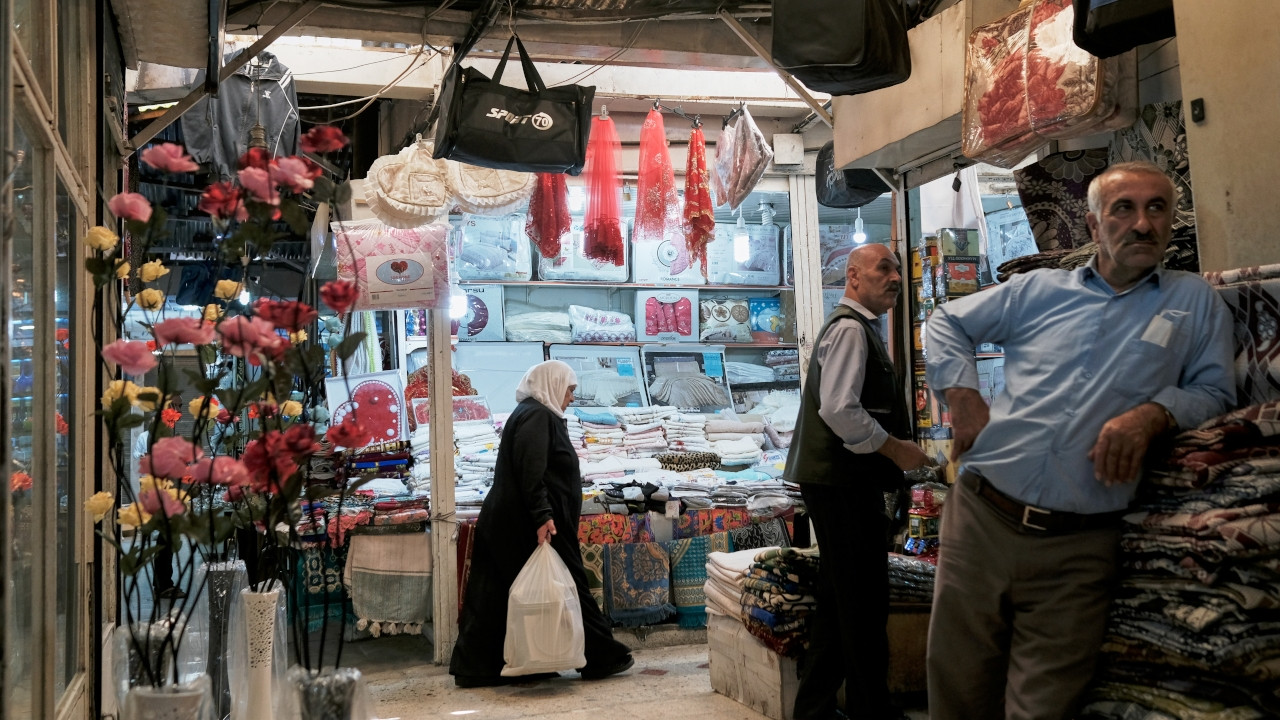A post-apocalyptic film by Turkey’s famously tattooed socialist MP
Turkey’s famously tattooed MP Barış Atay has released a post-apocalyptic film: With its focus on refugees, Eden maintains its relevance at a time when the fall of Afghanistan has again made immigration the most fiercely debated topic in Turkey.
Turkey’s famously tattooed MP Barış Atay has released a post-apocalyptic film. Eden was first shown at film festivals in 2018 but has now been made widely available for the first time with its debut on the digital arthouse platform Mubi on Aug. 21. With its focus on refugees, Eden maintains its relevance at a time when the fall of Afghanistan has again made immigration the most fiercely debated topic in Turkey.
Atay is an actor as well as a parliamentarian for the Workers’ Party of Turkey (TİP). He is a socialist and - as we all know - socialists in Turkey make realist films. From Metin Erksan’s 1963 film Dry Summer through the entire oeuvre of Yılmaz Güney and up until the present, the standard formula for committed films is the realistic depiction of the social, historical, political conditions of a particular period.
That is why it is so refreshing that Atay has broken the mold by making a genre film, especially after his 2015 realist political drama Eksik. The genre of the post-apocalyptic film has not been tried much in Turkey and so Eden exists in the lineage of international films like Mad Max, Children of Men, and The Road. The story follows Aras (Funda Eryiğit) and Marba (Caner Erdem) as the couple flees war and famine in search of a new life. The opening scene shows them wandering through the Mars-like landscape of Antakya searching for water. Aras is pregnant, which makes her something of a Mary to Marba’s Joseph.
Despite the character’s robes and the rural setting, this is not another film set in ancient or medieval Anatolia. Quick glimpses of trucks and other technological devices make it clear that we are in some sort of futuristic, post-disaster setting in which Anatolia has been rocked by violence and shortages. Aras and Marba hope to find safety, but they quickly learn that there are thousands of refugees just like them in the City. They are aware, as another character tells them, that “no one likes a foreigner.”
Tired and starving, Aras and Marba stumble upon the compound of Bokaj and his tyrannical older brother Niac. (The futuristic flavor of the film is preserved through these unusual names.) As they approach the property, Marba tells Aras that she should call him “brother” while they stay there. He thinks that if the men know that he is Aras’ husband they will kill him. It is at this point in the film that we turn from the refugee issue to focusing on power relationships and patriarchy.
Without giving too much away, what occurs next is a slow and suspenseful battle of wills between Bokaj and Niac to possess Aras. Initially, Bokaj takes an interest in her and Niac conspires to leave them alone by taking Marba away from the house as a laborer. Later, the commanding Niac, who everyone is forced to address as “lord,” decides that he wants Aras for himself. The war between the brothers alludes to the Biblical story of Cain and Abel, who birthed the sin of fratricide. As for Aras, she wants only to escape this place, but it is now too late. Marba can do nothing but watch in horror, but he dares not go against the lord of the house or admit his true identity as Aras’ husband. As he tells Aras, “When you take away someone’s food and water, you basically own them.”
It is clear that in Onur Orhan’s screenplay and Barış Atay’s treatment, the fight to possess Aras is meant as a critique of the system that treats women as possessions in the first place. As early as Friedrich Engels’ “The Origins of the Family, Private Property, and the State,” socialists have at least paid lip service to how the property relations were based on the disempowerment of women. From Soviet revolutionary Alexandra Kollontai to contemporary thinkers like Silvia Federici, there is a long and important lineage of Marxist Feminists who understand the intersecting oppression of capitalism and patriarchy.
However, the narrative given in films like Eden is not one that I am certain we still need. Do we gain better awareness of patriarchy simply by seeing women treated like chattel in films? Already in Yılmaz Güney films like Seyyit Han: Bride of the Earth, the feudal structure of Anatolia was criticized through women characters passed around for the sake of honor. Similarly, watching the character Aras (in Funda Eryiğit’s powerful performance) quake with fear as the men whisper threats into her ears does little to raise our political awareness. Why do we need to see a traumatized Aras become even more traumatized? Fortunately, actual scenes of violence are left out of the film, but in the hands of a less capable director, you could see the continuation of this theme as exploitation.
The unfulfilling gender politics of the film were brought home for me while watching the online red carpet-style gala for Eden that was hosted by Mubi earlier this week. Host Muammer Brav joked that it was a good thing that Funda Eryiğit was there, otherwise the event would have been like an all-male coffeehouse. Yet it was still six men to one woman, the latter who was hired to represent the “woman question,” as Atay put it.
While Aras does make a heroic break for freedom at the end of the film and shows solidarity with the only other person at the bottom of the film’s social hierarchy, it would have been more powerful to see some of the energy of Turkey’s militant feminist movement reflected in the film. But for some socialists, it seems it is easier to imagine the end of the world than the end of patriarchy (to mangle a famous quotation). They can represent patriarchal violence but they seem unable to depict an alternative to it. But if we are doing genre film, there is no shortage of futuristic feminist films, like Lizzie Borden’s 1983 socialist masterpiece “Born in Flames.”
At another moment during the online gala, Funda Eryiğit responded to something Caner Erdem said about his character Marba. Riffing on Barış Atay’s comments about not blaming refugees for the crisis but rather the politicians who fail to manage the crisis, Erdem said that we should not blame the characters in the film but rather the social conditions that give them no options. Referring to Marba’s willingness to leave Aras in danger at the house of two strange men, Eryiğit said, bitingly, “I think we can blame Marba.”
I think, too, that we can praise innovative films like Eden while demanding even better.


 In Turkey's borderlands, fleeing Afghans get frosty welcomeDomestic
In Turkey's borderlands, fleeing Afghans get frosty welcomeDomestic